College News
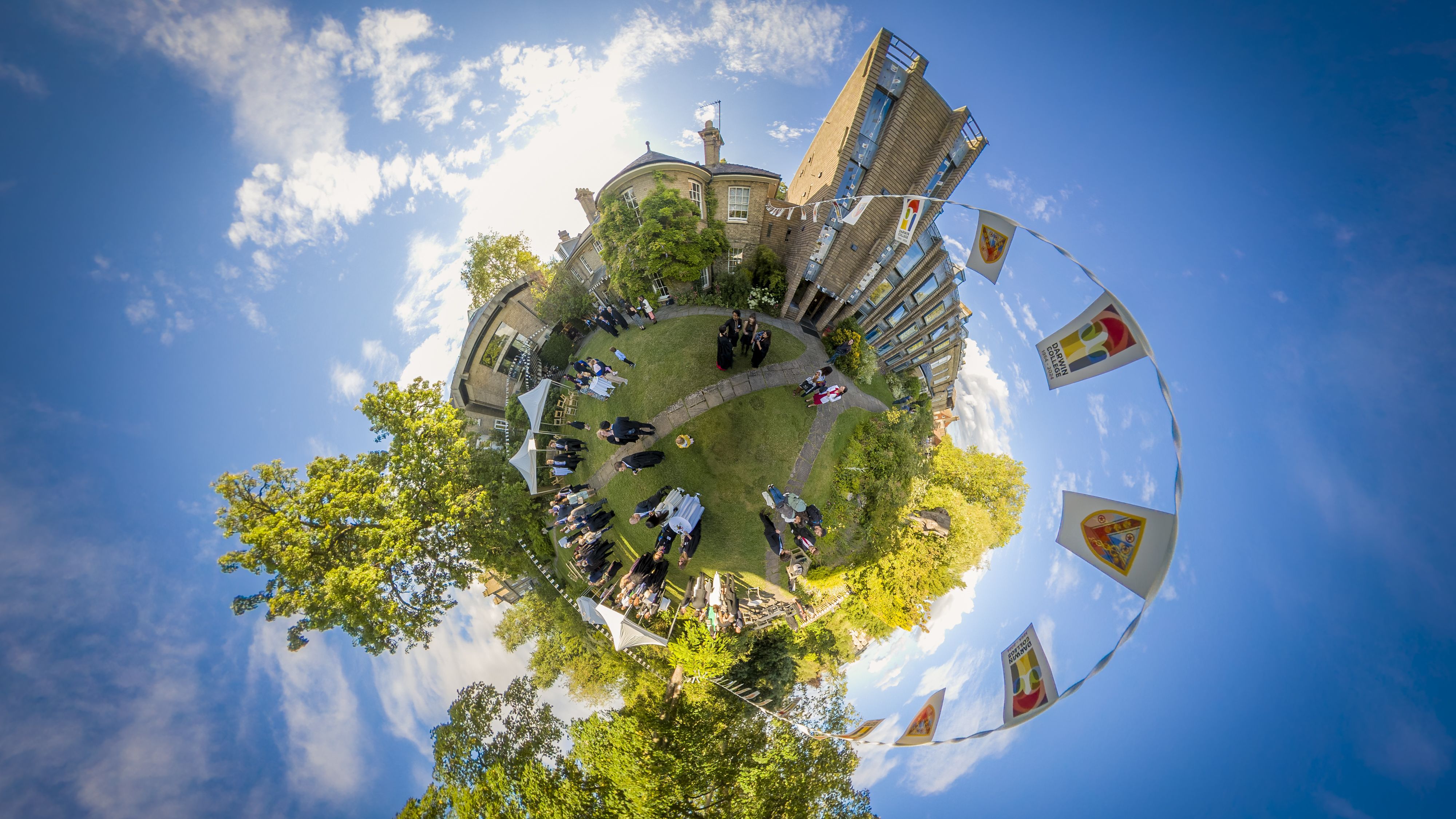
Thank you to everyone who helped us turn 60 in style!
Alumni from throughout Darwin’s history returned to the College over the weekend of 6th-8th July for a joyful celebration of our first 60 years and to look ahead to our future.
Over 400 people engaged with the weekend in some form, with 140 attendees at Saturday evening’s sold-out Family-friendly Formal, giving the children of Darwinians a taste of Cambridge tradition. In an extraordinary feat of efficiency, the catering team had no sooner completed the two-course sitting, than they were welcoming a further 120 diners for a three-course Celebration Dinner, as the sounds of the children’s gong-ringing still echoed in the air.
Friday night also saw a packed Dining Hall for dinner, preceded by fizz and canapés on the lawn accompanied by a string quartet. Though torrential rain did its best to drown out the music, while guests huddled under a series of hastily erected gazebos, the Master valiantly spoke to the assembled umbrellas, introducing outgoing DCSA President Niamh Hartley, who unveiled a board to ensure her predecessors and successors are listed for posterity.
The weekend began with a celebration of Darwin’s earliest cohorts, with alumni who attended the College between 1964 and 1974 joining the Master and the Development Director for lunch and a chance to pore over photos from the archive.
A varied programme throughout the weekend offered treasure hunts, garden games, colouring competitions and watercolour workshops; tours of the gardens and buildings from horticultural, ornithological, architectural and historical perspectives; a chance to consider the ways in which research and higher education can respond to global challenges from climate change to health in a fascinatingly engaging panel discussion; and musical contributions from the College choir as well as a viola and harpsichord recital.
From the seemingly limitless rotation of delicious meals, to the beautifully prepared floral displays, the clean-up effort required to ensure that the College continued to look presentable throughout the weekend, the exhibitions and histories researched and prepared, and the time and effort volunteered by staff, Fellows and students to welcome and entertain visitors, it was a truly collective effort on the part of the College community. Congratulations to the Development team for masterminding such a celebratory and multifaceted birthday party, and thank you to everyone who made it possible, as well as all those who braved the weather to come and be part of it.
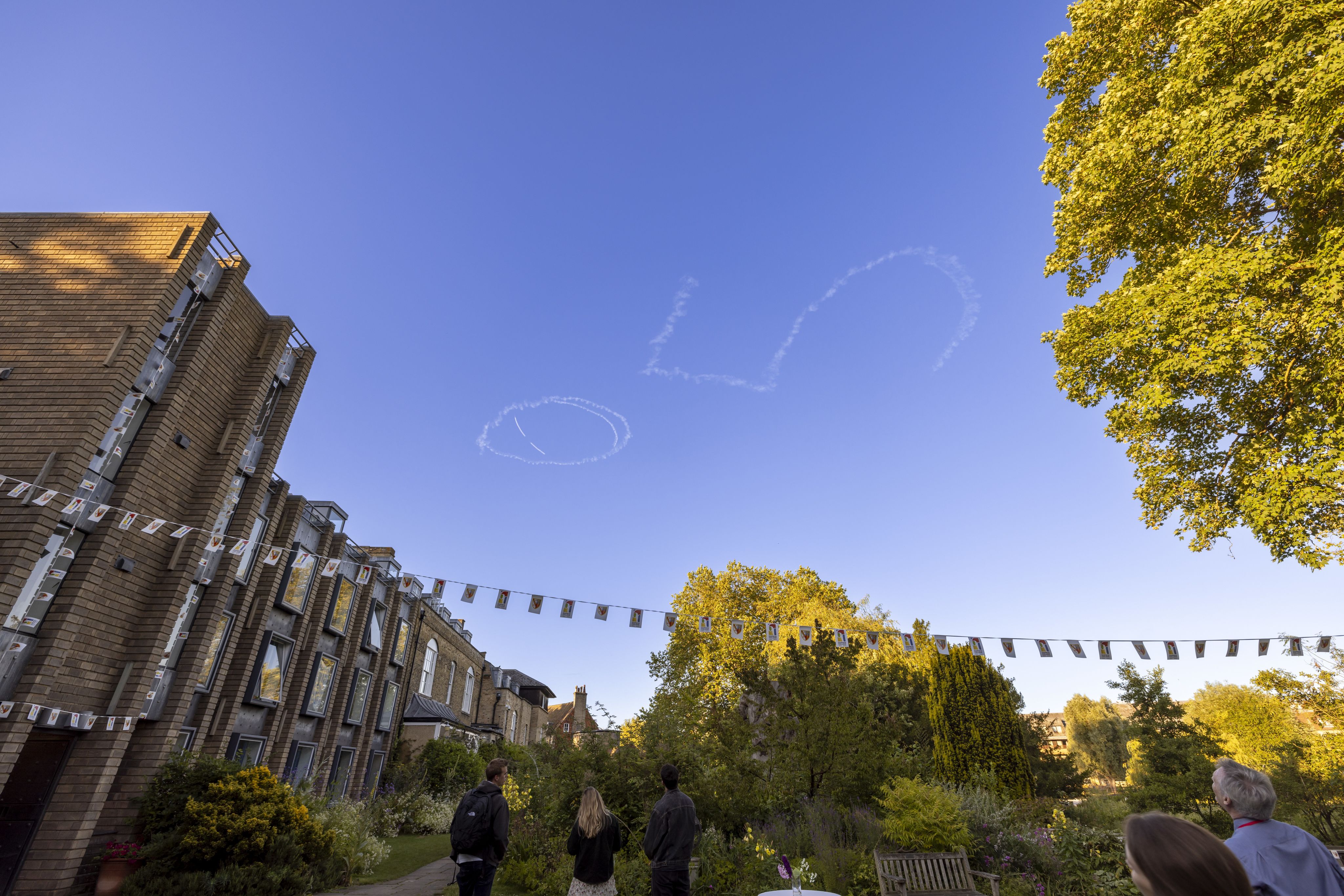
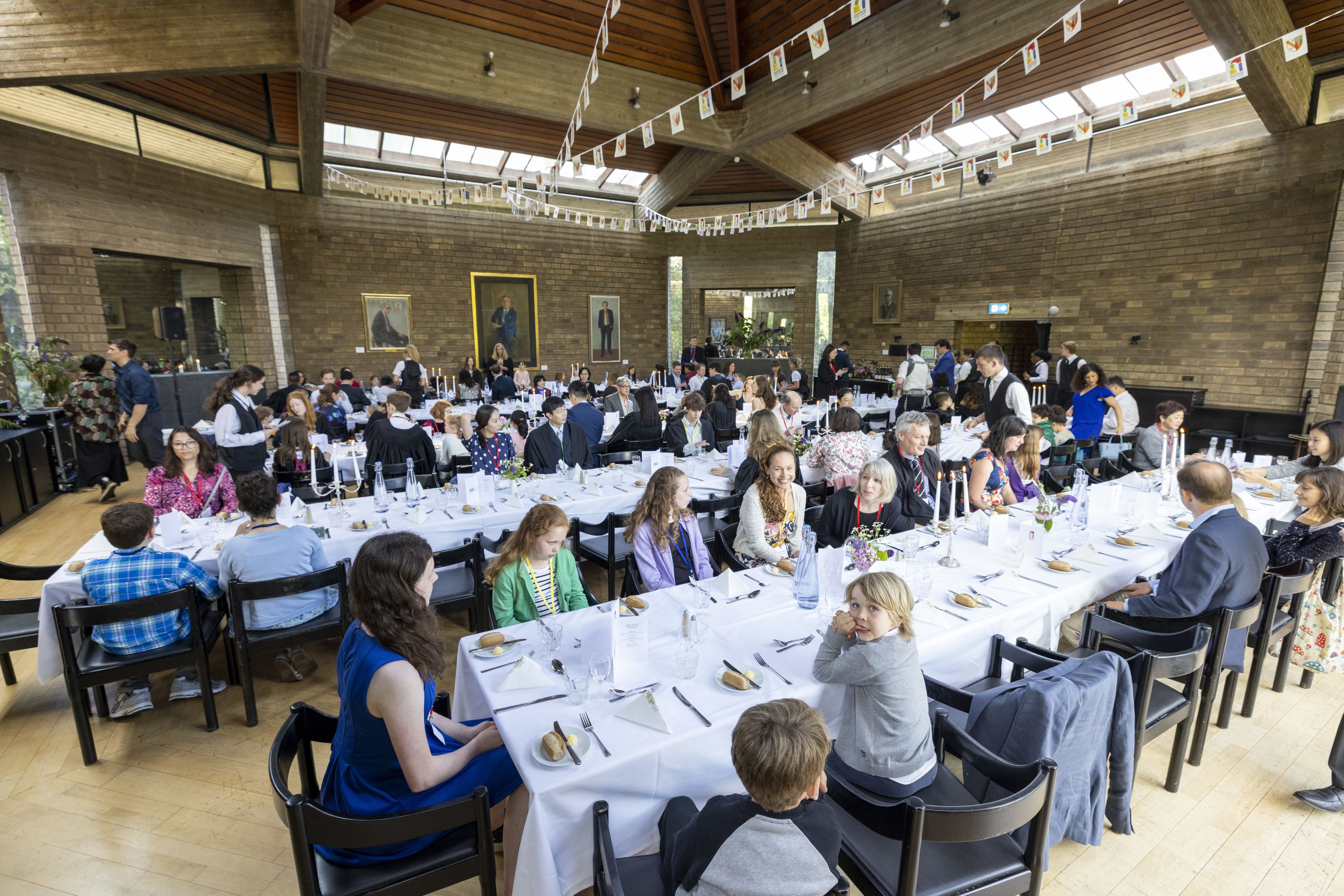
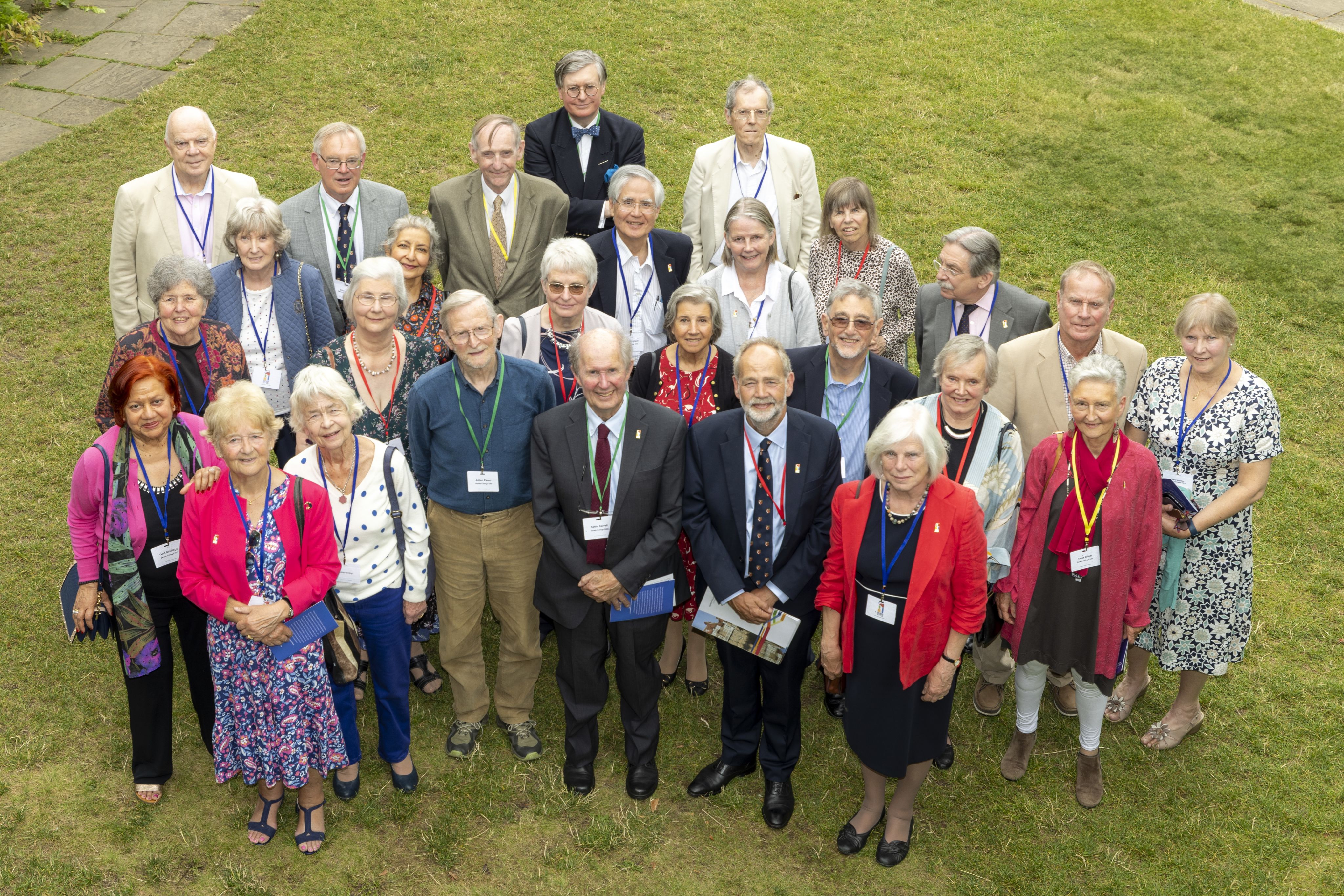
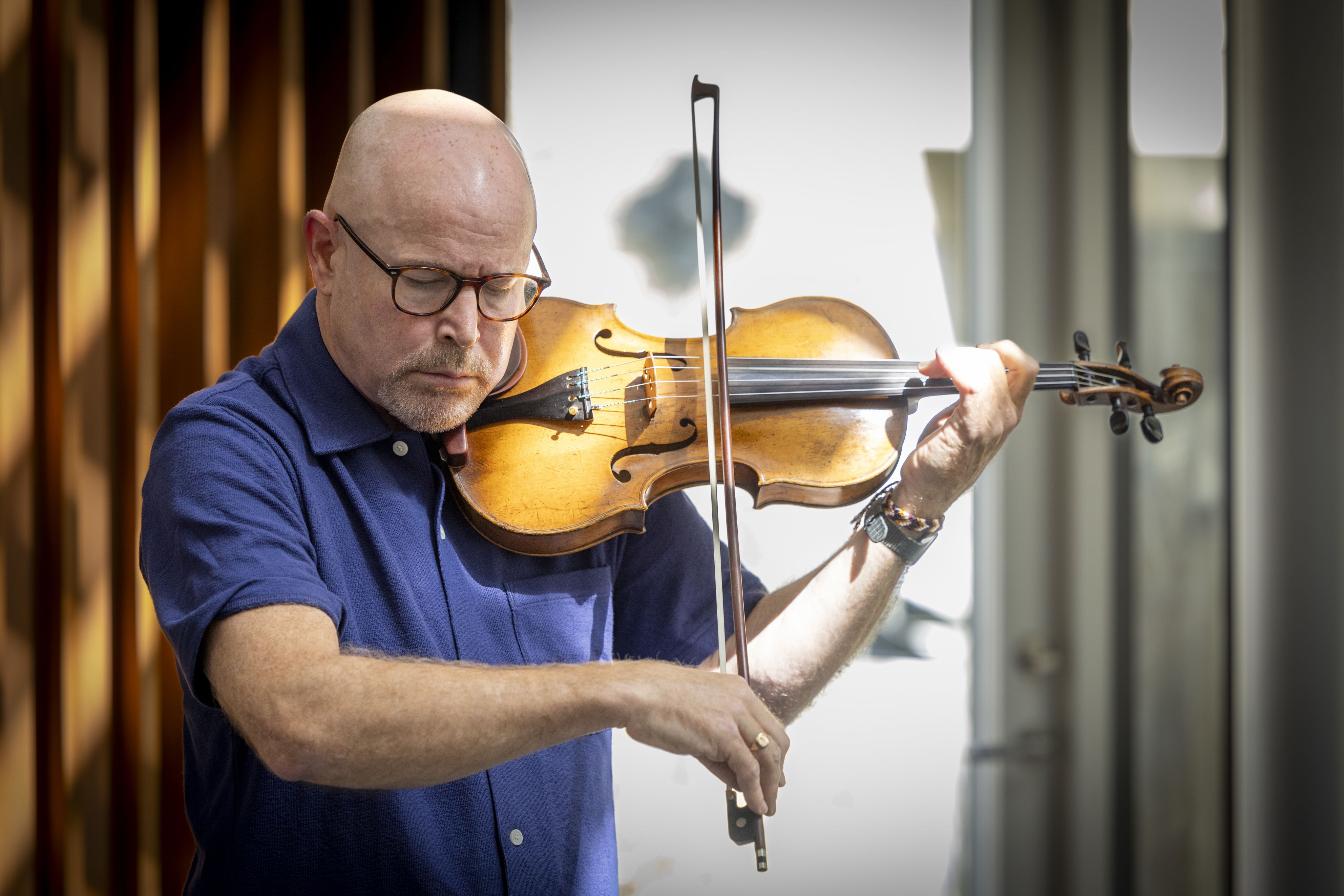
Families for Nature: Pioneers for a Regenerative Economy
Researchers, entrepreneurs and investors came together at Darwin this spring to celebrate the launch of a new foundation with deep Darwinian roots, created to further the global challenges of conservation and climate repair.
Developed by Darwin alumnus Michael Blank (MPhil Economics, 2004-6) in collaboration with his business partner Manuel Linder, Families for Nature aims to fund pioneering initiatives with a transformative effect.
Already, the foundation is funding the PhD research of Darwin student Jacob Pantling, who is investigating the possibility of refreezing the Arctic. Jacob presented his work alongside Darwin alumnus and Director of the Centre for Climate Repair Professor Shaun Fitzgerald, as part of a day which demonstrated the world-leading research taking place in Cambridge, and the impact of financial support to meaningful advancement.
The day began at the David Attenborough Building where the Master of Darwin, Dr Mike Rands, explained the role of the Cambridge Conservation Initiative (CCI), of which he was the first Director. Participants then moved on to Darwin College for an afternoon of sharing ideas, research and inspiration, before sitting down to dinner together.
“We’re facing a climate crisis, a biodiversity crisis,”said Dr Rands. “But what for me has been so exciting today is that we’re actually talking about solutions to address that.”
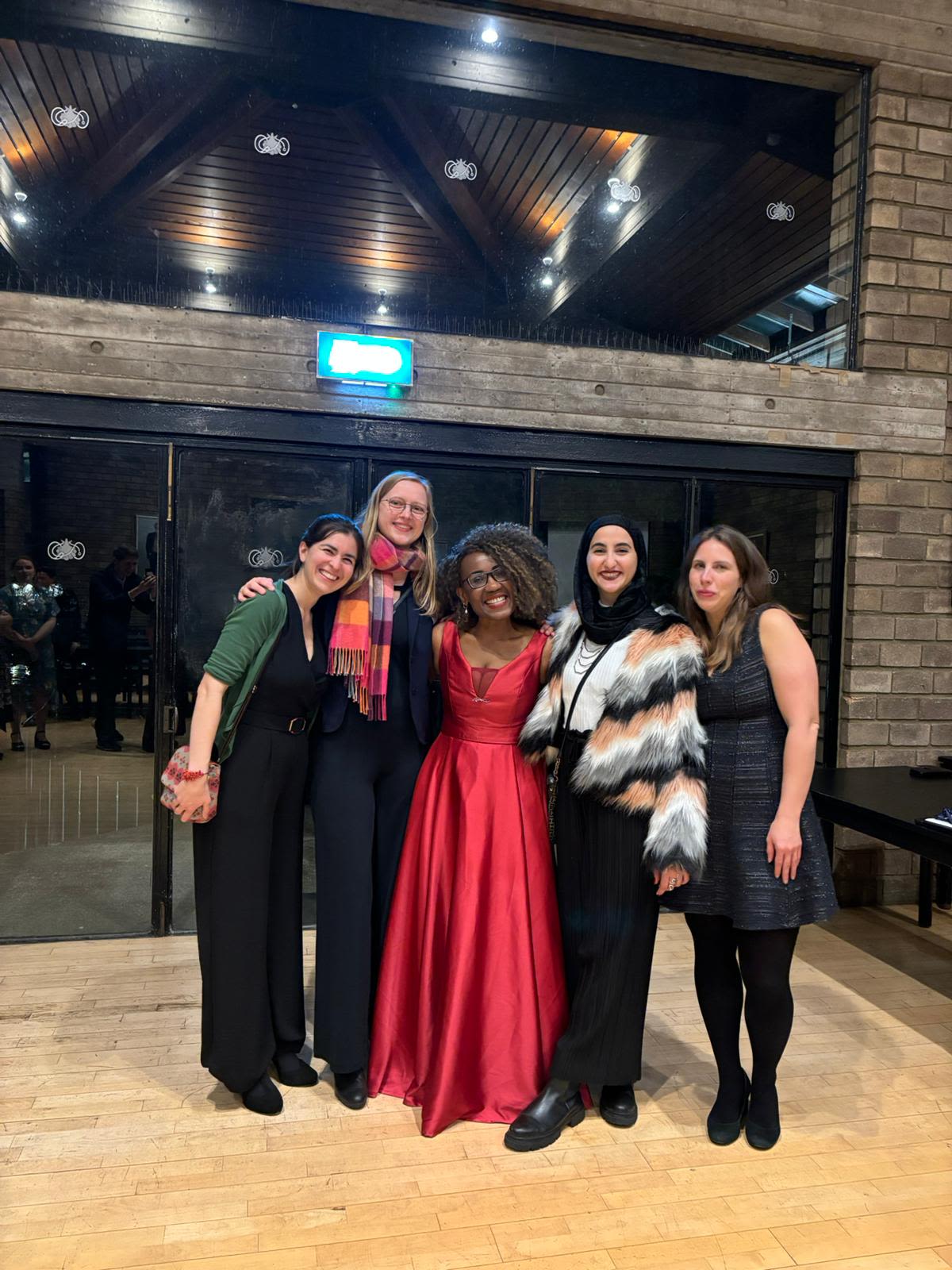
Bea Simpson and guests
Bea Simpson and guests
Charity Ball celebrates Darwin student’s impact on education
Completing a PhD while running a charity on another continent is no mean achievement. So it was wonderful to be able to honour that juggling act, as Darwin hosted a charity ball to support the work of Tusome Africa.
Founded by current Darwin PhD student in Education Bea Simpson, the charity provides crucial support to allow children in Uganda to access education.
The black tie event was presided over by Darwin Vice-Master and Professor of Education Professor Sara Baker. It included a Ugandan-inspired dinner in the Darwin Dining Hall, as well as music from student societies and the opportunity to celebrate both Uganda’s cultural richness and the transformative power of education.
Last year, Bea talked to the Darwinian about how her studies at Cambridge and the creation of the charity were two sides of the same coin. The ball provided on opportunity to reflect on both achievements, while ensuring the impact of Tusome continues to grow.
“I am so honoured and proud to have held it here at Darwin where my education journey and the search for solutions to educational challenges started – Tusome Africa is very much a part of my Cambridge journey, and it was such a pleasure to bring everything I have loved about being Darwinian together.”
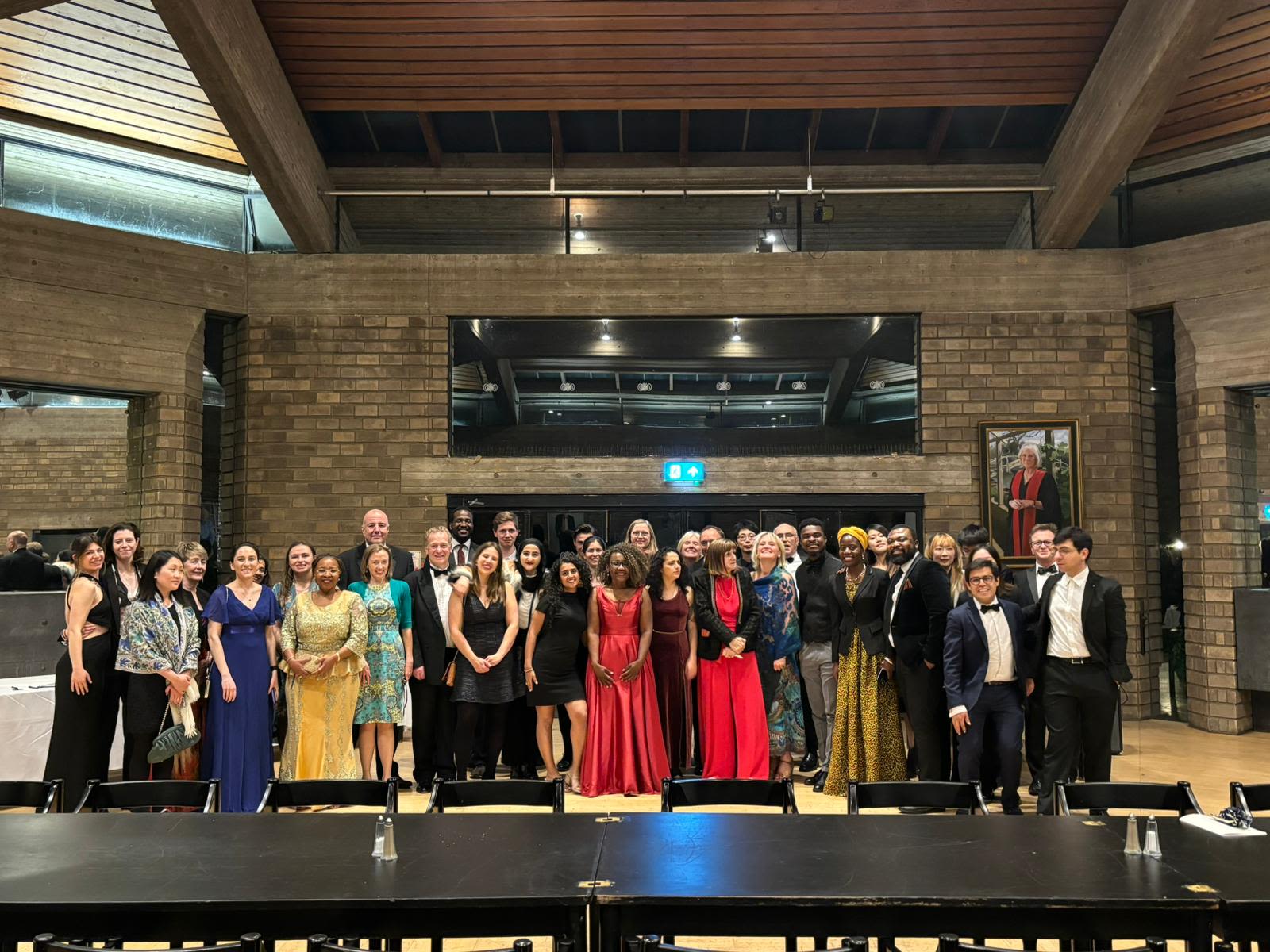
Tusome Africa Charity Ball
Tusome Africa Charity Ball
Darwin student wins Sykes Prize for creative writing
Congratulations to Darwin College PhD student in English, Louis Cameron, who has won Robinson College’s Sykes Prize 2024. Contributors were asked to submit a piece of creative writing which engaged with the idea of humanity’s place in nature, in response to an 1824 quotation by Giacomo Leopardi:
Did you perhaps imagine that the world was made for your benefit? Let me tell you that in my handiworks, in my arrangements and
my operations, except very seldom, I always had and always have
a mind to things quite other than the happiness of men or their unhappiness.
Louis’s story, Alfred Popkin Takes It All The Way To The Top, used the prompt to reimagine the suffering of Job, as a bereaved father struggles through increasingly farcical levels of bureaucracy to understand why God has seen fit to inflict such pain on him.
“I am honoured to have been selected for the prize, and very grateful to the judges for their time and consideration. It’s not often that I write fiction, and to have any of my work received well is extremely encouraging.”
Darwin College Lecture Series: Revolution
The 39th Darwin College Lecture Series encompassed genetics and biochemistry; history and history of art; philosophy and political theory; astrophysics and the structure of our brains, exploring political, scientific and cultural revolutions, as well
as revolutions in thought. Beginning in mid-January, it filled
the Lady Mitchell Hall week after week throughout Lent Term, making full use of spillover sites with live-streamed coverage, and attracting total audiences of 4,500 people. A further 200,000 people have so far viewed the lectures online.
Thank you to our speakers, Professor Sir Simon Schama, Professor Matthew Cobb, Professor Le Ypi, Dr Iain McGilchrist, Professor Didier Queloz, Professor Frances Spalding, Professor Nick Lane and Ms Tania Branigan, for an extraordinarily varied and compelling sequence of talks. Our thanks also to the organisers, Dr John Nilsson-Wright and Dr Aylwyn Scally, and the College Resistrar Janet Gibson, as well as to Ivan Higney and the Darwin catering team for overseeing eight weekly celebratory dinners.
We look forward to welcoming audiences back to Darwin next January for the 40th annual Darwin College Lecture Series, which will explore the theme of Codes.
Joshua Bickler elected as DCSA President
Following his undergraduate experience in his hometown of Auckland, New Zealand, Joshua Bickler felt the time was right to venture a little further afield for his postgraduate studies. Darwin couldn’t be much further from the familiar, but since he arrived here for his MPhil in 2022, it has felt like a home from home.
“I love New Zealand, but I wanted to get out and explore,” says the newly elected DCSA President for 2024-25. “Arriving here, even though I’d done my research, was so different to what I was expecting, but Darwin’s a very special place.”
Having completed his MPhil in Scientific Computing, Joshua began a PhD in Physics in 2023, researching through computational and numerical modelling the potential instabilities of fusion power devices.
“It’s a future green energy source that we really want to work,” he explains. “My research is about predicting how future devices will deal with the instabilities that will inevitably form.”
This commitment to a sustainable future was reflected early in his Darwin career, when he became DCSA Green Officer, and is central to his ambitions as President.
“I’m passionate about sustainability and really want to use the opportunity to promote green initiatives throughout the College.”
Joshua is also eager to engage PhD students further in College life, improving communications and events, and working with the College to provide clearer information on accommodation, as well as more consistent WiFi coverage.
“It feels like Darwin is unusually willing to listen to its students,” he says. “It’s a significant commitment, but I’m now at the end of the first year of my PhD, I’ve settled into the country and the College, and it feels like the right time to do it. It’s a big commitment but it’s worth it.”

Louis Cameron
Louis Cameron
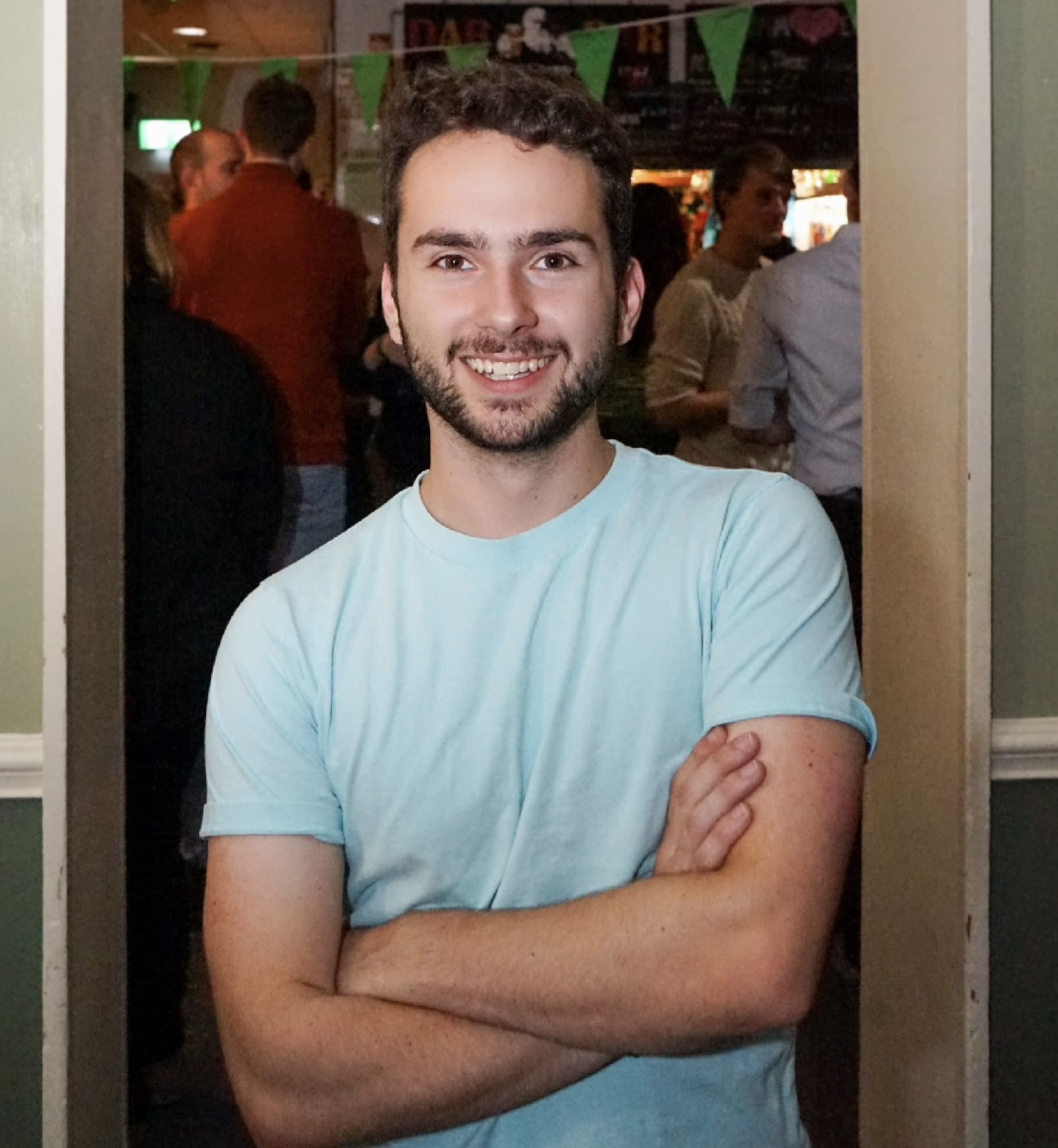
Joshua Bickler
Joshua Bickler
Putting music at the centre of primary teaching
Congratulations to newly qualified Darwin PGCE student Cressida McKay-Frith, who has been awarded the Charles Fox Prize 2024 by the Faculty of Education.
The award recognises the perception of her supervisors that “from the first day of the PGCE course, Cressida has impressed us with her strong desire to be the best teacher she can be”, as well her child-centred approach to teaching, her organisation, dedication and commitment.
Cressida studied at the Royal Northern College of Music before spending four years in Hong Kong where she worked as a music teacher. Her Cambridge training qualifies her to teach as an Early Years Primary Teacher, a role in which she plans to incorporate as much music as possible into the daily lives of young children. To that end she has successfully achieved the Cecilia Vajda Memorial scholarship, enabling her to attend the prestigious British Kodàly Academy Summer School this summer.
Cressida has accepted a permanent position as Year 2 teacher at the University of Cambridge Primary School.
“School starts every morning with 20 minutes of singing, so it feels like the right fit!” she says.
While her academic base in Cambridge has been at the Faculty of Education, with school placements often taking her away for 12 hours a day, Darwin has been a welcome retreat.
“I knew I wanted a postgraduate College, as I’d been working for a few years so was a bit older,” Cressida recalls. “Applying to Darwin was the best decision I’ve ever made. The PGCE is so full on, so having such a warm family feeling to return to every evening was wonderful.”
University of Bristol recognises contribution to physics of Rosemary Fowler
Darwin was honoured to play host on Sunday 14th July to the presentation of the degree of Doctor of Science honoris causa from the University of Bristol to Rosemary Fowler.
The mother of former Darwin Master Professor Mary Fowler, Rosemary graduated with first-class honours after her undergraduate degree in Physics in 1947, and immediately began working towards a PhD. Her identification, the following year, of the kaon, a particle which decayed to three pions rather than two, opened a new era of research, leading to Nobel prizes and critical discoveries on both sides of the Atlantic. Rosemary, however, stepped away from her studies to raise her family.
“There is no doubt that Rosemary had the intellectual rigour and curiosity to pursue an illustrious research career in Physics; perhaps, like her husband and fellow researcher
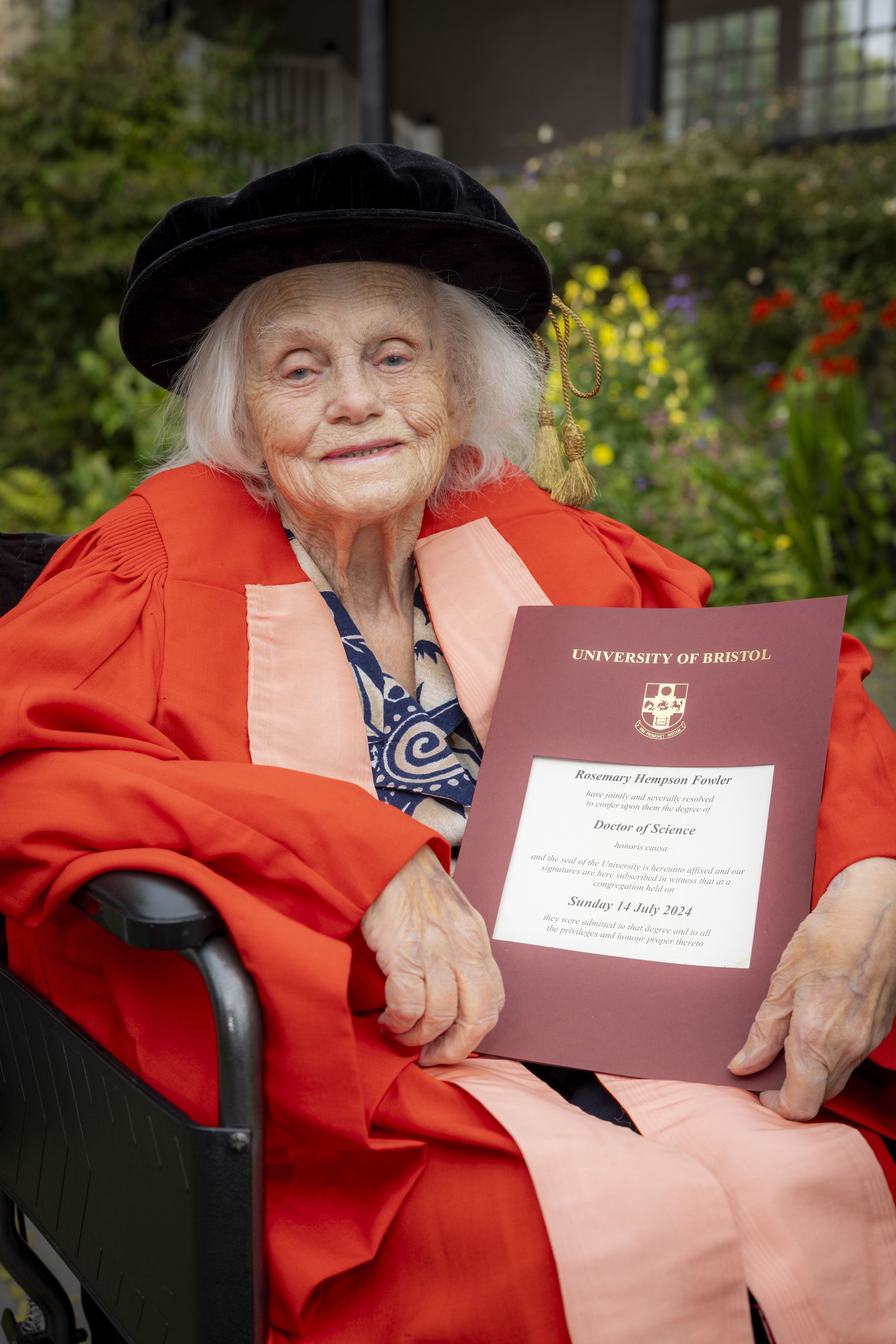
Rosemary Fowler
Rosemary Fowler
Peter, continuing to develop techniques for measuring and understanding cosmic rays,” said the geneticist and Nobel laureate Professor Sir Paul Nurse, who in his capacity as Chancellor of the University of Bristol presented Rosemary with her degree.
“In such a scenario, I have no doubt that the University of Bristol alumni team here today would have spent decades writing and celebrating her remarkable discovery in 1948, and all that she subsequently achieved.
“Instead, Rosemary and Peter made a pragmatic choice following their marriage in 1949. In a country with few working women, housing shortages, ongoing food rationing and hoping for a family, Rosemary left the University of Bristol without completing her PhD, and supported Peter’s work from home whilst raising their three daughters. Until now, we at the University of Bristol have not celebrated Rosemary’s work as a physicist as we should have.”
In a ceremony held in Cambridge rather than Bristol to reduce the travel imposed on the now 97-year-old Rosemary, representatives of the University and of Darwin joined a multi- generational gathering of her children, grandchildren and great-grandchildren. Her daughter, Mary, addressed the group on her behalf, recalling her wartime education in Bath, where her naval engineer father was posted by the Admiralty. In 1943 she became the only girl from her school to go to university, travelling from Bath to Bristol each day by multiple buses.
“As a child I wanted to be a physicist because it seemed to be exciting, such fun,” Mary remembered. “With both parents being physicists, physics and research were kitchen table chat! Rosemary influenced us all - we were all keen on science and maths. There was no thought that girls couldn’t do it.”
Rosemary’s scientific contribution has come to new light thanks to the work of physicist and science writer Suzie Sheehy, who shared her story through an essay in Nature earlier this year.
“We are enormously grateful to her for reintroducing us to Rosemary and making today possible,” said Sir Paul Nurse.
“Rosemary’s work in particle discovery in the 1940s, as a physicist at Bristol, paved the way for critical discoveries that continue to shape the work of today’s physicists, and our understanding of the universe.”
RIBA Award for John Bradfield Court
Darwin’s John Bradfield Court, designed by Allies and Morrison, has won a RIBA East Award 2024 for its regional importance as a piece of architecture.
The citation from the Awards Jury describes why the building and court has been such an effective addition to the site.
“Nestled on the banks of the River Cam, Darwin College, Cambridge is a unique assembly of 18th and 19th century domestic architecture, distinguished 20th century collegiate buildings, and riverside landscape.
John Bradfield Court is the most recent addition to this rich collage of buildings and layering of historical periods. It defines the edge of the College closest to the city, creating a new College entrance and adding the distinctive sculptural form of a new multipurpose space.”
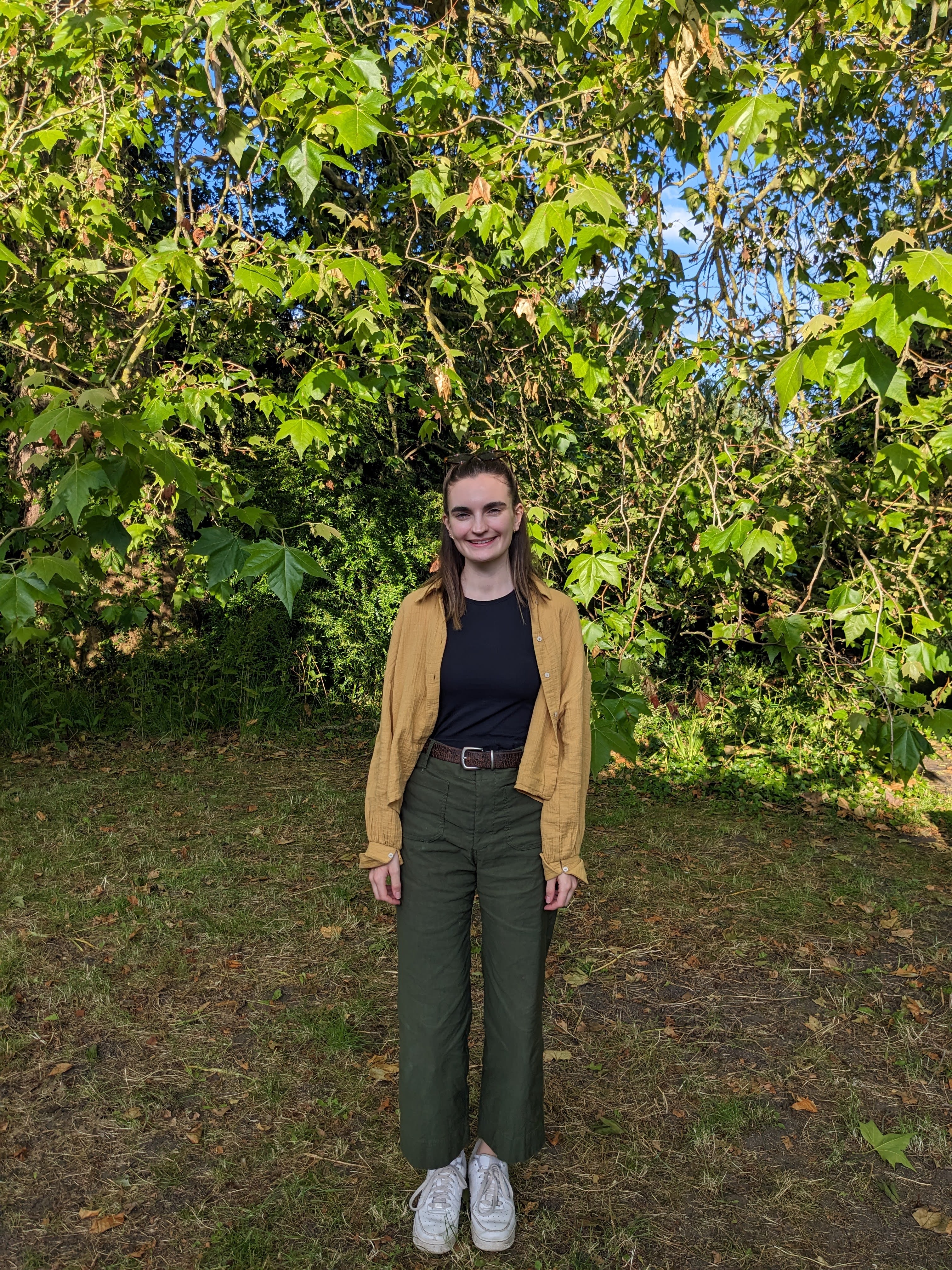
Cressida McKay-Frith
Cressida McKay-Frith
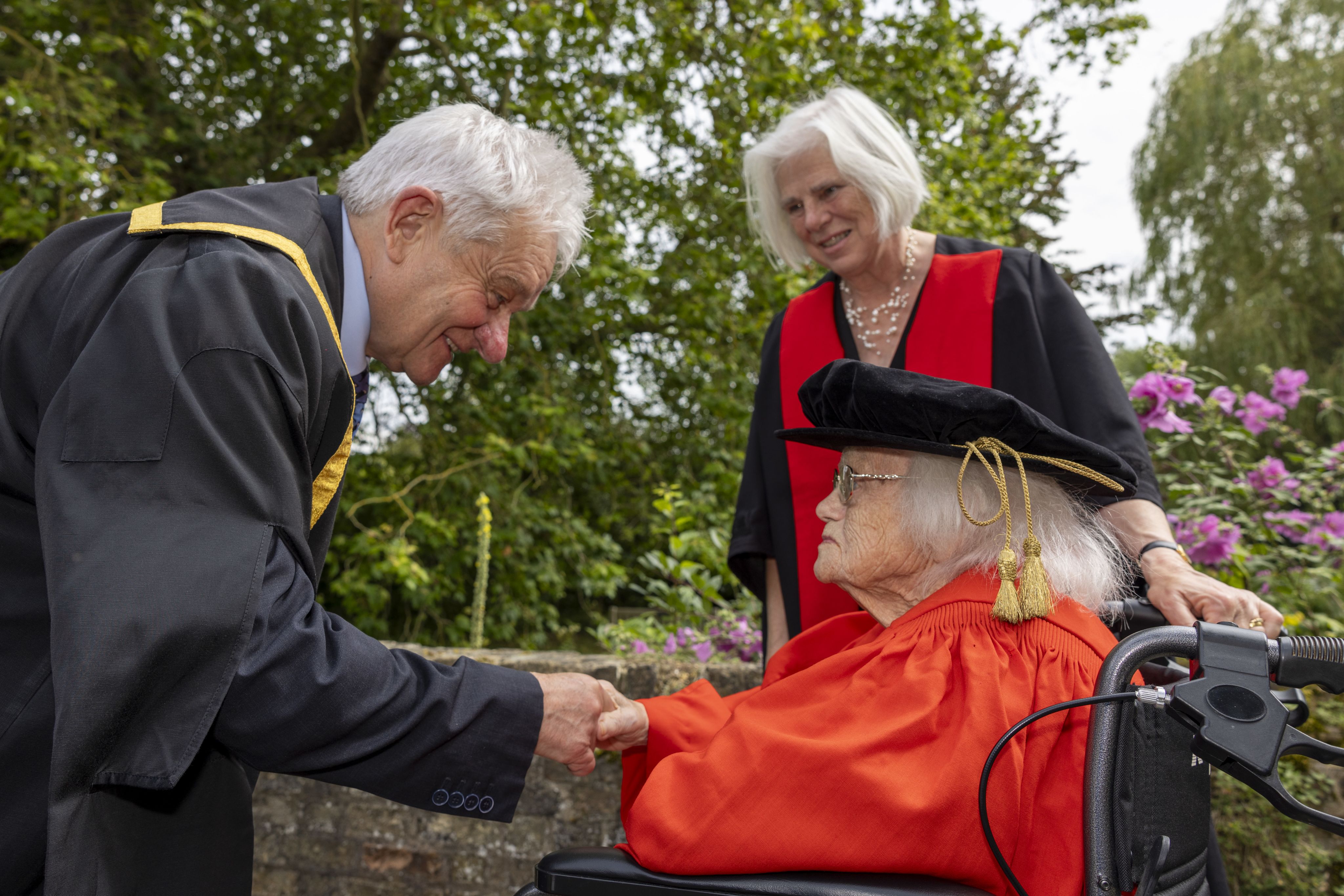
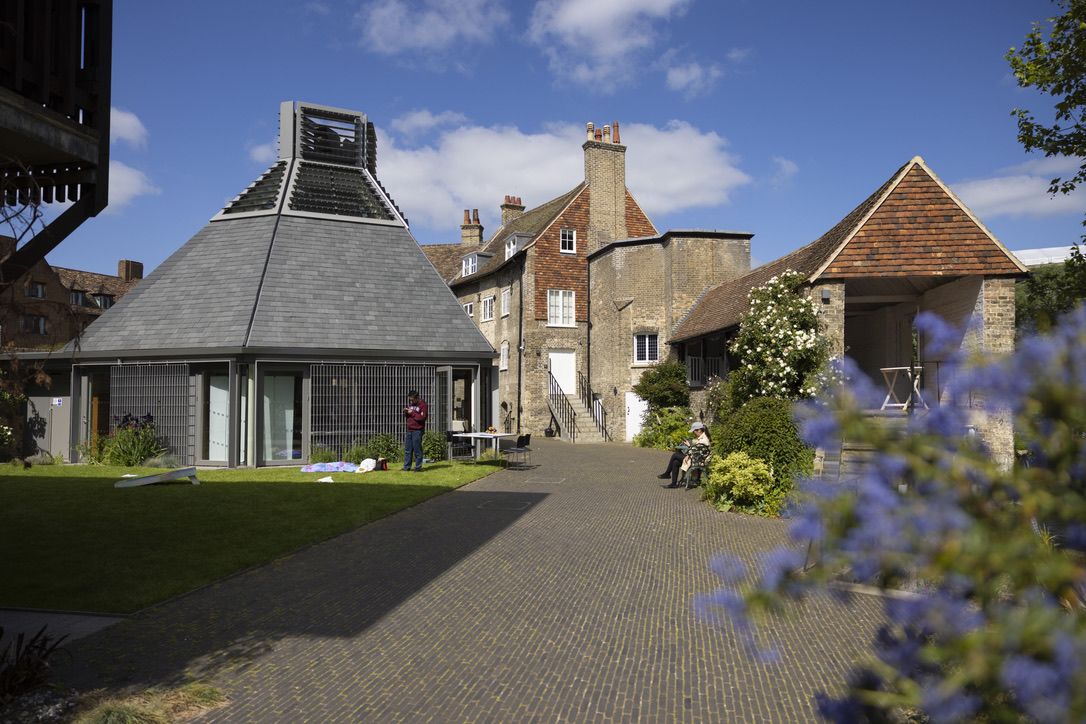
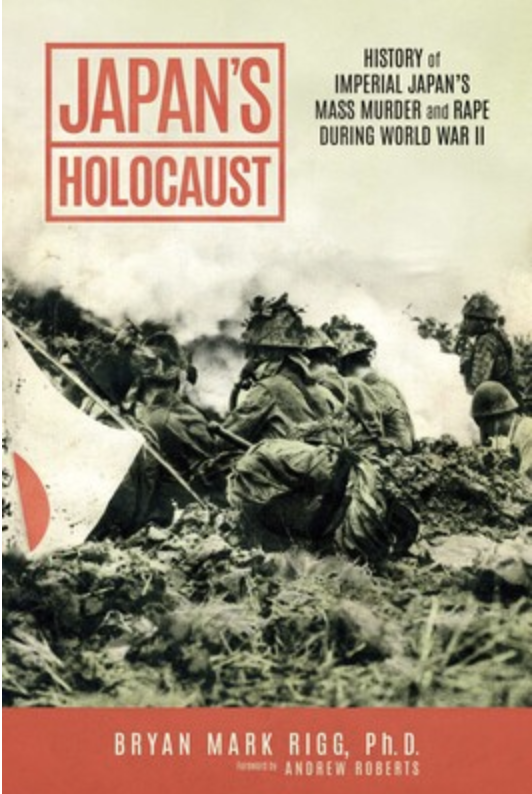
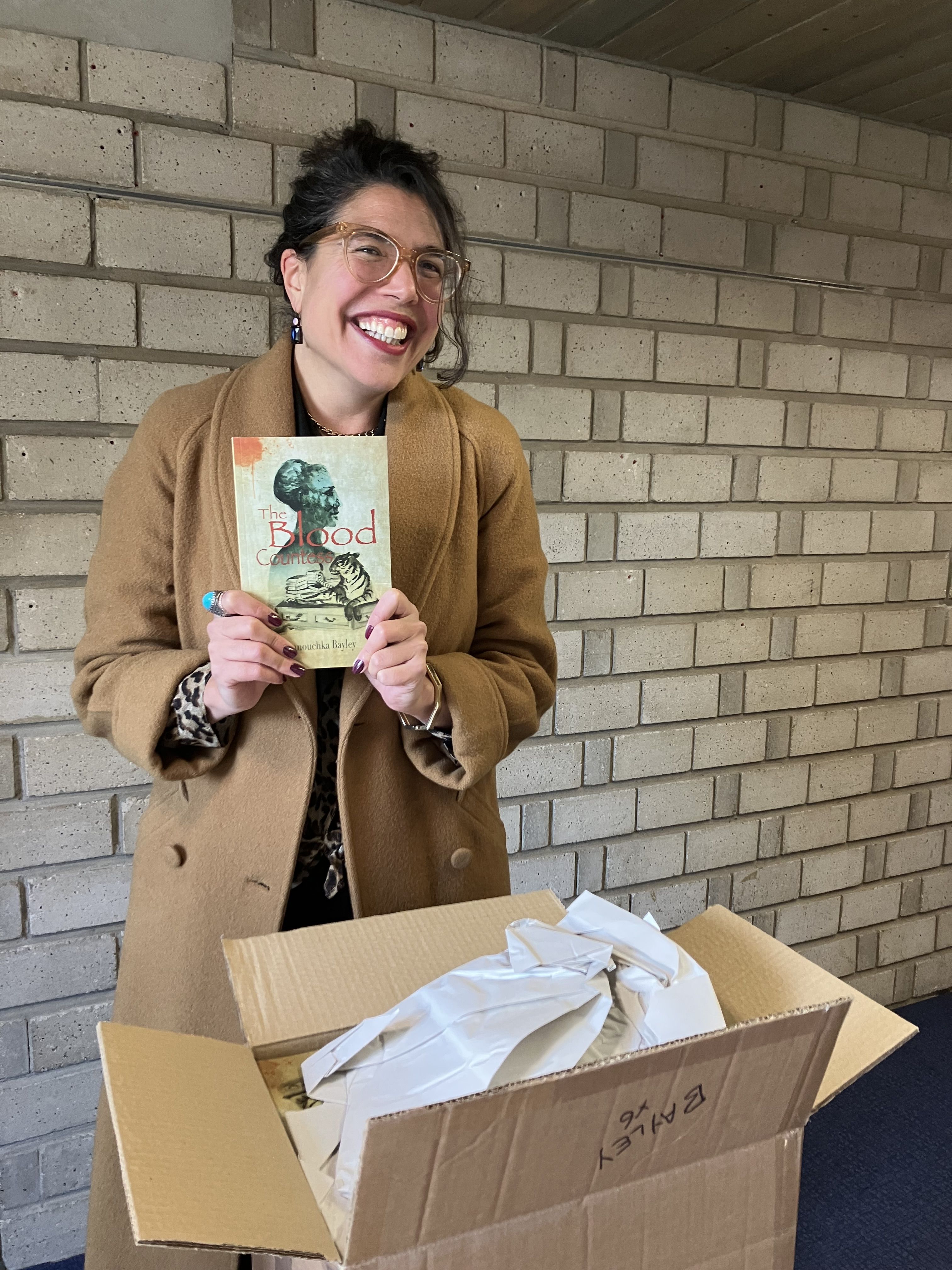
Annouchka Bayley
Annouchka Bayley

Chris Sandbrook
Chris Sandbrook
Publications and awards
Darwin alumnus and military historian Bryan Rigg (PhD History 1996) has received extensive coverage, including positive reviews in the Wall Street Journal, for his “unflinching” examination of atrocities committed by the Japanese army in the name of the Emperor. Not for the fainthearted, the WSJ warns that “readers should gird themselves for horrors they’ve either ignored or never imagined,” in Japan’s Holocaust: History of Imperial Japan’s Mass Murder and Rape During World War II, but praises an “encyclopaedic” account of an under-examined history.
When Darwin Fellow in Education Dr Annouchka Bayley was just 17, a chance discovery in the secondhand bookshop where she worked set in motion a lifelong fascination.
The book introduced her to the centuries-old story of Elizabeth Bathory, a Hungarian noblewoman known as the Blood Countess owing to her bloodthirsty reputation as history's most prolific female serial killer. But from the first, something about the story didn't add up, Annouchka told the BBC's Laurence Cawley.
"While I was reading it I found myself thinking, 'hang on a minute, I don't buy any of this, this is a stitch up job'," she said.
Nearly a quarter of a century later, Annouchka's novel The Blood Countess presents an alternative reading of history, positioning Bathory as a subversive feminist, publisher and educator.
Rory Hills, Darwin PhD student in Pharmacology, has authored a report published in Nature Nanotechnology, demonstrating a new approach to vaccine technology which protects against future disease outbreaks before the pathogen even emerges.
"What our lab wants to do - what I want to do - is develop vaccines before the next pandemic, and this paper is a step towards that goal," he says.
The new vaccine works by training the body’s immune system to recognise specific regions of eight different coronaviruses, including SARS-CoV-1 and SARS-CoV-2, as well as variants identified in animal populations which have yet to make the leap to humans.
What makes the new approach so potentially powerful is that it trains the immune system to attack specific virus regions which appear in many related coronviruses, providing protection against variants not represented in the vaccine – including ones that haven’t even been identified yet.
Congratulations to Professor Chris Sandbrook, Darwin Fellow, Professor of Conservation and Society, and Director of the MPhil in Conservation Leadership, who has been listed as one of the most influential academics working on environmental issues by The ENDS Report.
The Power List 2024 names the 100 UK environmental professionals who have made the greatest impact in the past two years, including the 10 academics shaping the science.
Congratulations to Darwin Catering Manager Ivan Higney, who has received an award for sustainability from the British Culinary Federation.
The federation's 17th Annual Dinner and Awards Evening recognised talent and achievement across the hospitality industry.
